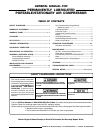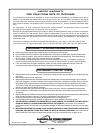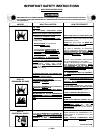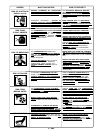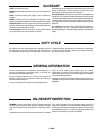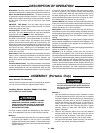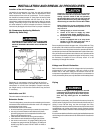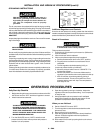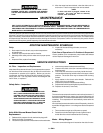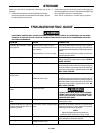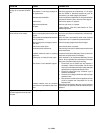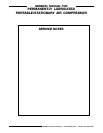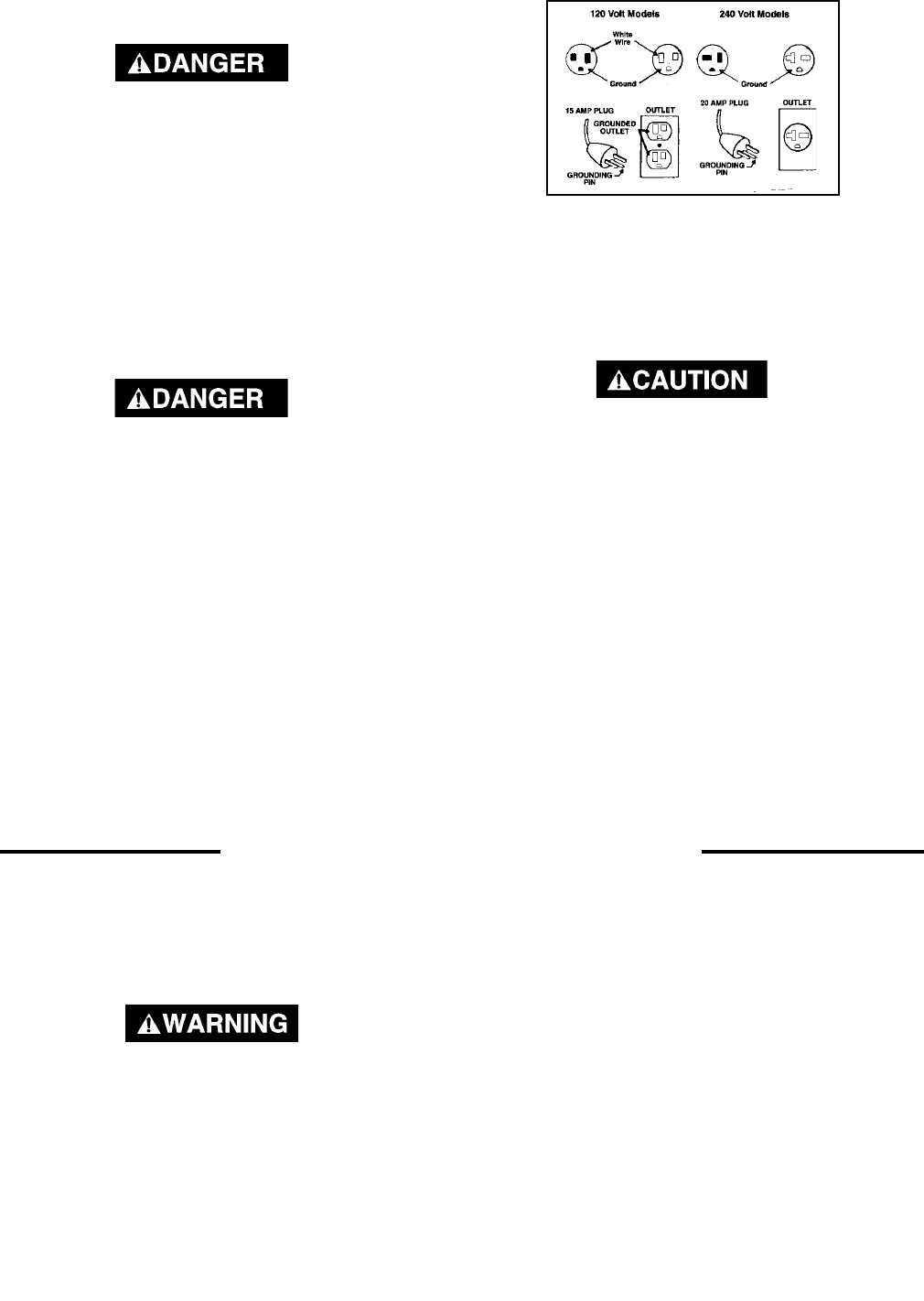
8 — ENG
Additional Regulators and Controls
Since the air tank pressure is usually greater than that which is
needed, a separate regulator is usually employed to control the air
pressure ahead of any individual air driven device.
Break-in Procedures
Serious damage may result if the following break-
in instructions are not closely followed.
This procedure is required:
1. Before the air compressor is put into service. (Before the
hose is installed.)
2. When the check valve is replaced.
3. When a complete compressor pump is replaced.
a. Set the pressure switch lever to the "OFF" position.
b. Plug the power cord into the correct branch circuit
receptacle.
c. Turn the regulator clockwise opening it fully, to
prevent air pressure build-up in the tank.
d. Move the pressure switch lever to "ON/AUTO". The
compressor will start.
e. Run the compressor for 15 minutes. Make sure the
regulator is open and there is no tank pressure build-up.
f. After 15 minutes, close the regulator by turning it
counterclockwise. The air receiver will fill to cut-out
pressure and the motor will stop. The compressor is
now ready for use.
IMPROPER GROUNDING CAN RESULT IN ELEC-
TRICAL SHOCK.
Do not modify the plug that has been provided. If it does not fit the
available outlet, the correct outlet should be installed by a qualified
electrician.
If repairing or replacing cord or plug, the grounding wire must be
kept separate from the current-carrying wires. Never connect the
grounding wire to a flat blade plug terminal. The grounding wire has
insulation with an outer surface that is green - with or without
yellow stripes.
If these grounding instructions are not completely understood, or
if in doubt as to whether the compressor is properly grounded,
have the installation checked by a qualified electrician.
INSTALLATION AND BREAK-IN PROCEDURES (cont'd)
Daily Start-Up Checklist
1. Before attaching air hose or accessories, make sure the ON/
AUTO lever is set to “OFF” and the air regulator is closed.
2. Attach hose and accessories.
TOO MUCH AIR PRESSURE CAUSES A HAZARD-
OUS RISK OF BURSTING. CHECK THE MANUFAC-
TURER'S MAXIMUM PRESSURE RATING FOR AIR
TOOLS AND ACCESSORIES. THE REGULATOR
OUTLET PRESSURE MUST NEVER EXCEED THE
MAXIMUM PRESSURE RATING.
OPERATING PROCEDURES
3. Turn the ON/AUTO lever to “AUTO” and allow tank
pressure to build. Motor will stop when tank pressure
reaches “cut-out” pressure.
4. Open the regulator by turning it clockwise. Adjust the
regulator to the correct pressure setting. Your compressor
is ready for use.
5. Always operate the air compressor in well-ventilated
areas; free of gasoline or other solvent vapors. Do not
operate the compressor near the spray area.
When you are finished:
6. Set the “ON/AUTO” lever to “OFF”.
7. Turn the regulator counterclockwise and set the outlet
pressure to zero.
8. Remove the air tool or accessory.
9. Open the regulator and allow the air to slowly bleed from
the tank. Close the regulator when tank pressure is
approximately 20 psi.
10. Drain water from air tank by opening drain cock valve on
bottom of tank.
GROUNDING INSTRUCTIONS
RISK OF ELECTRICAL SHOCK! In the event of a
short circuit, grounding reduces the risk of shock
by providing an escape wire for the electric cur-
rent. This air compressor must be properly
grounded.
The air compressor is equipped with a cord having a grounding
wire with an appropriate grounding plug. The plug must be used
with an outlet that has been installed and grounded in accordance
with all local codes and ordinances. The outlet must have the
same configuration as the plug. See illustration. DO NOT USE AN
ADAPTER.
Inspect the plug and cord before each use. Do not use if there are
signs of damage.



